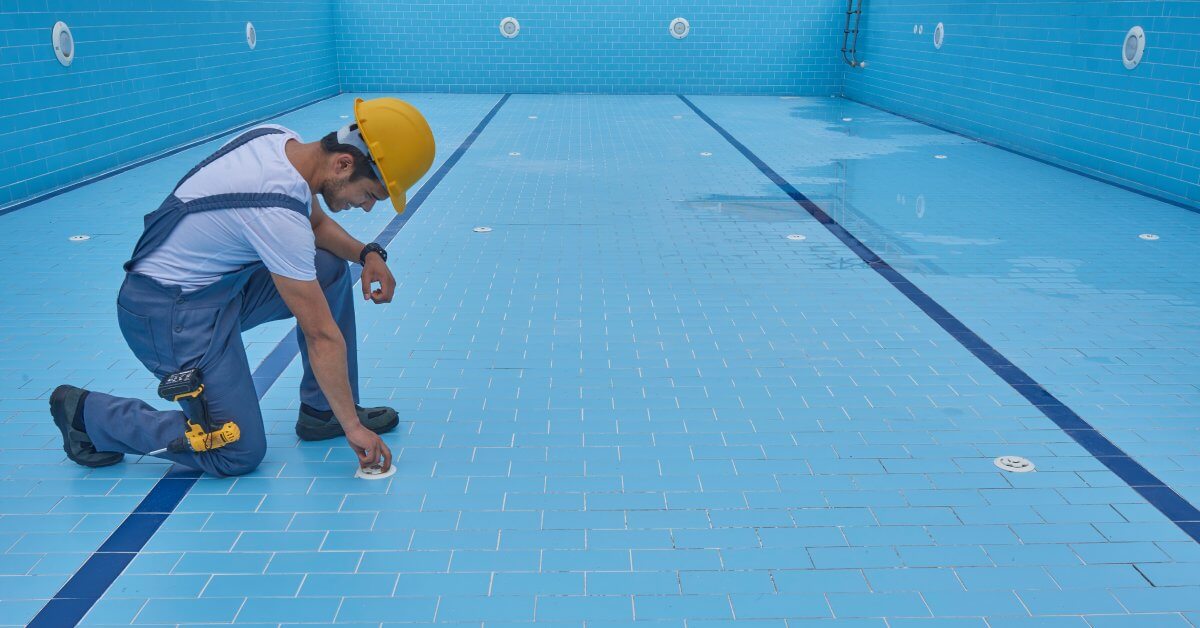Maintaining a commercial pool’s functionality and appearance is critical for guest satisfaction and business success. Pools are key attractions for customers in various industries, including hospitality, fitness, and recreation. Over time, wear and tear are inevitable due to frequent use, chemical exposure, and environmental factors. When this occurs, deciding between pool restoration and renovation determines the future of the facility.
Whether managing a hotel, gym, or community recreation center, understanding the differences between pool restoration and renovation for commercial properties can impact operational efficiency, budget allocation, and customer experience. This guide provides an in-depth comparison that explores their advantages, challenges, and implications.
What Is Pool Restoration?
Pool restoration involves repairing and revitalizing an existing pool to bring it back to its original condition. Unlike renovations, restoration primarily addresses structural and operational issues caused by aging or damage. Restoration for commercial properties includes fixing cracks, resurfacing pool interiors, replacing outdated tiles, and rebalancing the mechanical systems.
You can extend the life of your pool without undergoing major construction or design changes by opting for restoration. This can be a cost-effective way to meet safety and operational standards, ensuring the pool remains functional for daily use.
What Is Pool Renovation?
Pool renovation involves transforming an existing pool by making significant upgrades or repairs. Renovations can include altering the pool’s shape, incorporating modern features like waterfalls or LED lighting, upgrading to energy-efficient systems, or changing the pool’s size to accommodate more users. Renovation is more comprehensive, enhancing the pool’s appeal to attract more customers or meet changing trends and expectations.
For commercial properties, renovations can offer a competitive edge in the market. While this process requires a larger investment than restoration, its long-term value can outweigh the initial costs.
Key Differences Between Pool Restoration and Renovation

The distinction between restoration and renovation primarily lies in their scope and focus. Here are some key differences to consider.
Purpose
Restoration focuses on repairing and maintaining the existing elements of a pool to extend its lifespan. Renovation, on the other hand, involves redesigning its shape, adding new features, or updating its aesthetics to match contemporary trends.
Cost Difference
Pool restoration is more affordable since it focuses on repairing damaged or outdated aspects of the pool. This is ideal for those working within a tight budget. Renovation requires a larger financial commitment, involving major changes or overhauls to the pool’s structure and features. New installations, materials, and labor expenses can significantly increase the overall cost.
Time Investment
Restoration projects are quicker to complete because they involve targeted repairs and maintenance. These projects might only require days or a few weeks, depending on the extent of the damage. Renovations take longer to execute since they often require demolishing, redesigning, and installing new features. The timeline can span weeks to months.
Visual and Functional Impact
Restorations aim to preserve the pool’s original design and functionality while ensuring it remains safe and operational. The changes are subtle with minimal aesthetic transformation in most cases. Renovations provide a significant visual and functional transformation. They can completely alter the pool’s appearance and usability by adding modern designs, new technology, and updated features.
Use Cases
Restoration is ideal for structurally sound pools that need repairs due to aging or wear. Renovation is best for additional functionality. It’s the perfect choice to turn an outdated pool into a luxurious, state-of-the-art feature.
Benefits of Pool Restoration for Commercial Properties
Pool restoration offers numerous advantages for commercial properties, making it an excellent choice for business owners looking to enhance their facilities. From an environmental perspective, restoration supports sustainability by reusing and revitalizing existing materials, reducing waste, and promoting eco-friendly practices.
For properties with historical or iconic significance, restoration helps preserve the pool’s original design and character while improving its safety, functionality, and aesthetic appeal. This approach ensures that pools remain attractive and operational without compromising historical value or breaking the bank.
Benefits of Pool Renovation for Commercial Properties
Renovating a commercial pool offers a wide range of benefits that can greatly enhance the appeal and functionality of a property. A modernized pool featuring updated designs and striking features elevates the aesthetic appeal and attracts new customers, boosting business and improving the property’s public perception.
Upgrading to energy-efficient systems, such as LED lighting and advanced water filtration, reduces operational costs while contributing to environmentally friendly practices. Safety enhancements and accessibility features, such as nonslip surfaces, better lighting, and compliant entry systems, ensure the pool adheres to modern regulations and provides a secure environment for all guests.
Factors To Consider Before Starting a Project

When undertaking a new project, several factors can significantly influence its success. Here are the key aspects to evaluate before getting started.
Budget and Financial Planning
A clear budget is essential for any project. This includes estimating overall costs, allocating funds for unexpected expenses, and identifying financial resources. Assess the return on investment (ROI) to ensure the project aligns with your financial goals.
Time Constraints and Deadlines
Projects often come with specific timeframes, so you must determine a realistic deadline. Consider the project’s length, potential delays, and whether it may impact ongoing operations or commitments.
Scope and Objectives
Clearly define the project’s scope by outlining objectives, deliverables, and expectations. This ensures everyone understands the goals and the work required to achieve them.
Resource Availability
Evaluate the availability of necessary resources, such as materials, equipment, and personnel. This step ensures the project has the support to proceed without significant interruptions.
Current Condition or Starting Point
Review the existing condition of any assets or infrastructure. A professional inspection can help determine whether a restoration or renovation is necessary.
Why You Need Professionals for the Job
Whether you’re restoring or renovating, experts ensure a seamless process from start to finish. Professionals have the expertise to identify underlying issues, plan effectively, and execute intricate tasks safely and accurately. For commercial properties, partnering with specialists is not just recommended but essential due to strict industry standards and high customer expectations.
Professional commercial pool restoration services guarantee efficient repairs without compromising safety or quality. These services also offer valuable guidance tailored to the unique needs of commercial pools.
Deciding between pool restoration and renovation requires a clear understanding of your property’s unique needs. Both options offer significant benefits, but the choice depends on factors like budget, goals, and the pool’s current condition.
While restoration focuses on extending the pool’s life, renovation allows for a complete transformation to elevate customer experiences. Working with qualified industry professionals is key to achieving your desired results efficiently and effectively. By thoroughly assessing your property’s requirements and investing in the right solution, you can ensure your commercial pool remains valuable for years.
























